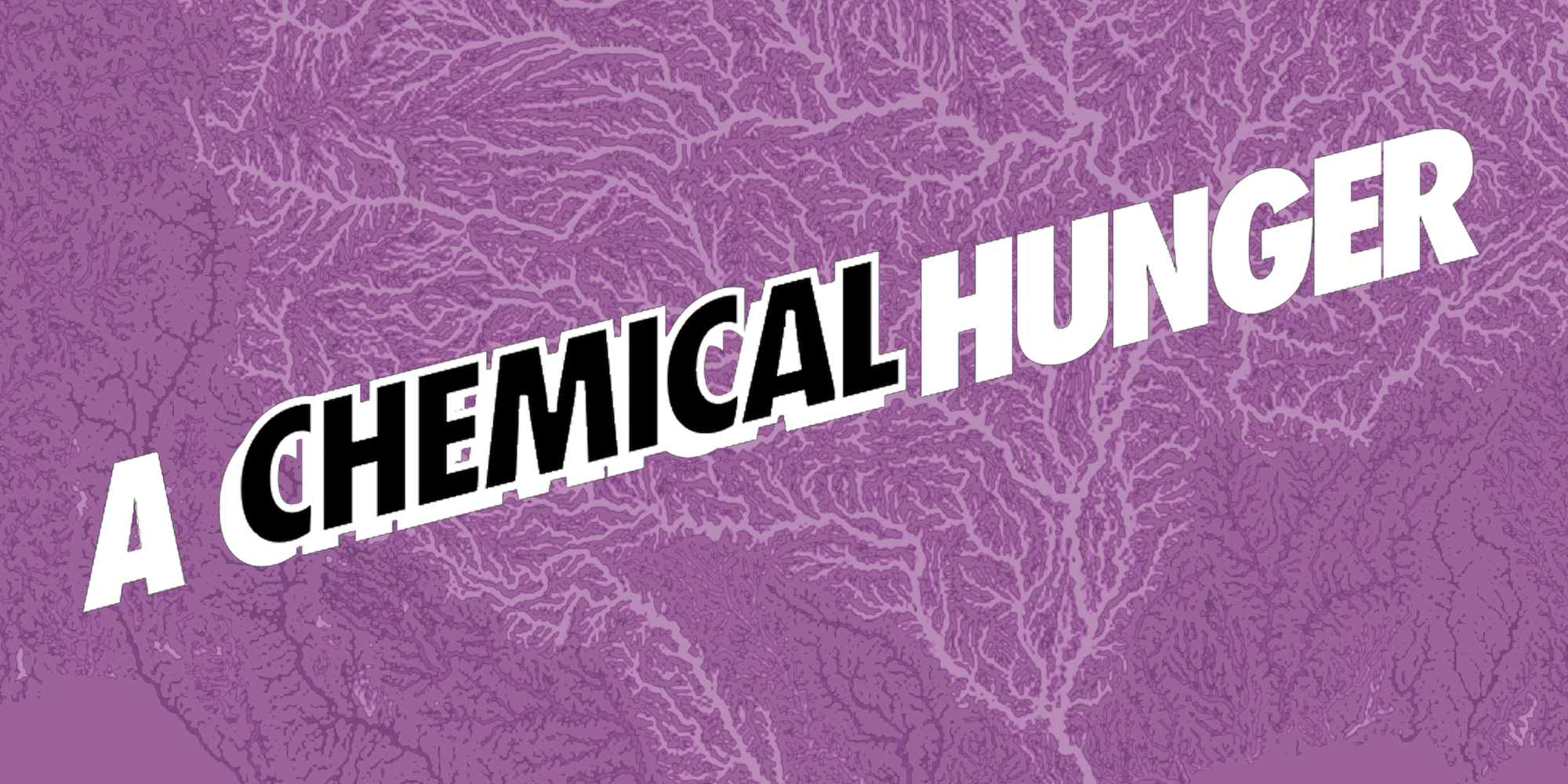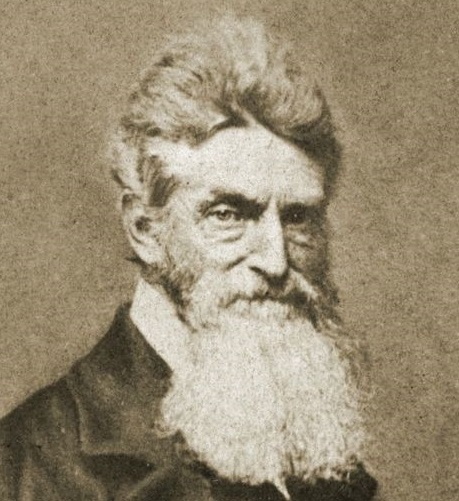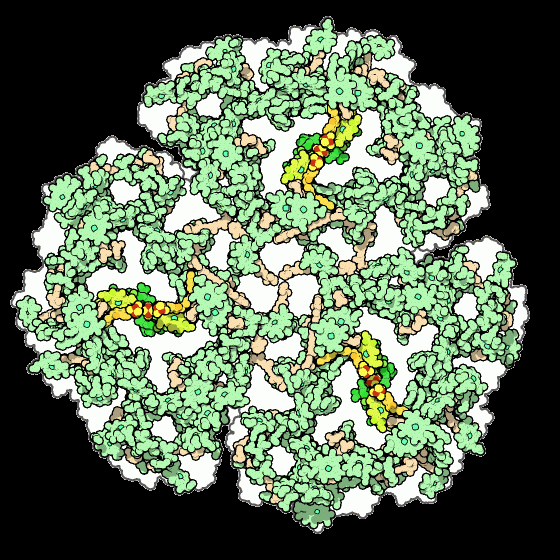Site is a link aggregation of a series of blog posts that cite various studies about the mystery of why the obesity rate is increasing, and why the rate of increase is itself accelerating. Authors make a compelling argument that normal homeostatic processes (the theorized lipostat specifically) tend to keep people within a certain BMI range. Authors argue that environmental contamination is breaking the lipostat, driving obesity rates upwards, and faster where there's more contamination.
Interesting read and a great reason to switch to :vegan-v: with a focus on not buying anything wrapped in plastic.
My pops always used to say there was something in the waters of America that made it such a fucked up WASP ridden hellhole. If he saw the growing studies on pfas chemicals just covering every inch from ground to sky in America, he'd have a shit eating grin every time the subject came up
Note that the authors found multiple studies showing non-industrialized populations had significantly better outcomes. :anprim-pat: stay winning, no obesity no cancer high fertility
Modern susciety be like you will have clogged artery, you will not cum, and you will be happy
covid can cause you to cum into yourself. Like a reverse cum. I forgot the official term for it 😂
Saying "calories in calories out" to a person to lose weight is like telling a sprinter to run faster to win the race. Yes, it's true on a technical level, but it's how you accomplish that which is hard and what matters.
CICO people pretty much refuse to accept that "CO" can change based on a lot of factors besides what a simple calculator sez online. Even CI is often just a guess as well.
CICO is very hard to keep up with, but a super useful tool.
I do think its weird that its considered so easy to "just go vegan", but something like tracking the food you eat is considered reddit stormfront bullshit.
It's because veganism isn't supposed to require you to deny yourself food when you're hungry. The idea of a whole food plant based diet is to eat foods that lead to a healthier appetite rather than starve yourself to lose weight. There are quite a few studies now that show WFPB diets to be beneficial to weight loss even when people are allowed to eat as much as they want.
Out of the gate, referring to not eating until you're stuffed as "starving" yourself is just a weird attitude to have overall. eating what you need vs eating everything you think you deserve is a product of excess and modern dietary trends.
I'm not saying "immediately cut to 1200 calories and only eat watermelon". I'm saying count what you're eating because its probably a lot more than you think.
Going vegan isn't a simple matter, you have to be interested in it in the first place to do all the research for animal-free alternatives to every day foods and products. You have to figure out how to adjust your diet for nutritional deficits from cutting animal products and how to get those back via plant based products. You have to go into every social situation asking what foods are made with what. GL with going to BBQs because you might be the only vegan there so you're going to be bringing your own food or eating off the burger topping plate.
I see no difference between withholding food from yourself once you identify how much you're overeating for your lifestyle vs withholding animal products for a moral/ethical/environmental cause.
Both are non-trivial and I hate this attitude that an individual deserves overeat all they want, but also oh you're not a proper leftist if you don't live near a whole foods with 8 types of milk alternatives.
All this to say, I'm always promoting eating less meat to people. Its awesome making a vegetarian dish and being able to stuff yourself because a serving is 120 calories and by volume mostly plant fibers. Of course you lose weight when you're able to eat as much as you want. But you can't eat 2 pounds of impossible meat a day and expect the same outcome because its plant based.
but also oh you’re not a proper leftist if you don’t live near a whole foods with 8 types of milk alternatives
Literally no one has said this
I apologize for the exaggeration.
I was trying to say there's a big disconnect these circles which I find very frustrating.
You're right that it's not necessarily easy to change diet. There's a lot of learning how to make food again since meat is such a big part of (many) carnists diet. It's also very limiting when eating out and sometimes frustrating socially too. I think most of us want to say it's easy because we look at the alternative (suffering and death on an unimaginable scale) and feel it's the least we can do. Sharing resources for easy vegan recipes should always be a priority when talking about it if we're gonna say "it's easy"
Poor choice of words on my part. My point is that restricting calories requires subjecting yourself to a level of physical discomfort that veganism does not. The inconveniences that come with being vegan suck, but feeling hungry all the time can be truly intolerable.
Lack of availability of affordable healthy foods is a valid, but separate, issue.
Is it even true on a technical level? I feel like it depends on what you count as "in" and "out", and those are more complicated than simply how many calories enter your mouth, and how many you burn exercising.
I'm a reasonably active person but I can put down a huge number of carbs (mostly in legumes and grains, not sugar or white bread) as well as other calorie dense foods like nuts, and I'm the same slightly under average weight I've always been. I'm a massive eater and I just can't buy the CICO theory, because if it were so simple, I really should be gaining more weight.
CICO is weird because there are some weird things regarding metabolism but overall it is reliable.
IMO the best benefit of CICO is to expose the lies you tell yourself about what you put in your mouth. By forcing the count for everything, you can no longer try to logic away little snacks here and there and one is forced to confront how much they're actually eating.
I've had tons of friends and family struggle with various EDs. The biggest thing I've seen is people will have extremely caloric snacks and then logic that it doesn't count. CICO is extremely useful in breaking that mentality, but once you're deep into it, it gets more complicated.
I've helped several friends try to straighten out their diets and it's usually the case that they are habitually snacking on something and not doing the math on how many calories it is. I would never blame anybody for overeating in this godforsaken timeline, lord knows I stress eat all the fucking time, but if you genuinely want to lose weight you have to do some sincere dietary self-crit.
One of my friends went "keto" for a bit and didn't budge the scale at all after a couple of months, turned out she would be good all week and then drink like 4000 calories worth of sugary alcoholic beverages every weekend and not count them (no nutritional info on the cans).
Another would make a meal that would normally be healthy but she would add, no joke like 3-4 tablespoons of butter to every dinner and that's all it takes to go from losing 1 lb per week to 0 lbs per week.
things like keto bug me for a lot of reasons. I'm a firm believer in that a "diet" is a long term pattern, not just something you do for a bit. you don't describe an animals diet as something that it does for a couple months on and off.
The examples you gave are why I'm big into CICO, less for the restriction, more for the knowledge of what you're eating.
Yep, I was able to make sustainable, permanent changes to my diet because of what I learned about the caloric density of the foods I was eating. The best example is that I don't drink regular full-sugar soda anymore, and I hardly ever drink juice. It's just not worth it. I am a total sucker for baked goods, but I found that oatmeal will scratch that itch and is much more filling than the same amount of calories in cookies.
Another way I started thinking with high calorie stuff was converting those calories to miles run. Is eating four Oreos worth running two miles? Fuck no.
You also naturally trend towards eating healthier stuff, because healthier stuff is more filling per calorie.
Well if your excess calories are mostly slow digesting carbs, you're not going to gain lean mass. Especially if you're active. You'd have to eat more protein, while still in a calorie surplus. Because while CICO is true, not all calories are the same. Excess protein is more likely to be turned into lean mass, excess carbs and fat into fat. That why athletes and bodybuilders have macronutrient splits in their diets and don't just eat whatever they want all day to hit a calorie target.
Extreme example but read this
https://www.ncbi.nlm.nih.gov/pmc/articles/PMC4022420/
https://www.ncbi.nlm.nih.gov/pmc/articles/PMC4022420/table/T2/?report=objectonly
The HP group in the extreme calorie surplus mostly consisting of protein( 4.4g of protein per kilogram of body weight!!!) actually lost fat and gained muscle (gained 1.9kg of lean mass and lost 0.2kg of fat), while eating 800 more calories than the control group. While the control group put on a little fat and muscle (gained 1.3 kg of lean mass and gained 0.3 kg of fat), despite eating 800 calories less.
Obviously please don't eat like this, it's an extreme example that shows that protein is more likely to be turned into lean mass than fat, and despite eating over 800 calories more, their body composition stayed similar and they didn't put on a ton of fat compared to the control group. In fact, the control group put on more fat
I mean, I think that's exactly my point. Everything you just posted goes to show it's a lot more complicated than CICO. If a calorie of beans isn't equal to a calorie of table sugar, and the protein group could eat 800 more calories than the control and still lose weight, then counting calories is not the be all and end all of weight loss or gain.
Especially if you're struggling to eat fewer calories and feeling tired/grumpy/not satiated, it might be more worthwhile to change the kinds of foods you're eating instead of trying to stay under 2000 or whatever with pancakes and pop.
Yeah, that's what I mean by "technically true". It's true as a technical law, you cannot get energy from thin air. But it's usefulness as a standalone thing is limited.
I encountered this in January, through the rationalist sphere. My thoughts on it then:
This author points out that evidence for watershed contaminants is mostly just maps of where people are poor. Apparently this lipostat thing is "academic consensus" which I did not know.
Some people think the obesity epidemic is caused by vegetable oils. I think these people are cranks because
(a) this resembles the troubled "fat bad" "sugar bad" etc macro theories
(b) causal mechanism equally unclear vs environmental contamination
(c) vegans like myself eat lots of vegetable oil and are less fat than avg. IMO definitely something wrong with western pattern diet thoI think it's neat food for thought, but I favor economic-driven diet variation as primary factor. There are probably a number of causes.
Edit: it is also true that poor areas are most polluted, e.g. https://www.propublica.org/series/sacrifice-zones. Anecdotally, my friends share body shape with their parents even when they don't share hometowns. That could be epigenetic effects of pollution on parents, or wealth- and culture-driven diets. Many possible explanations and since everything is correlated it's hard to rule anything out. I would like to read about obesity in AES.
lol, I remember owning reddit bazinga brains on this literally 10 years ago
"calories in calories out" okay then drink a cup of gasoline. it has 2000 calories
Or take a Punjabi and a Greek and give them an all-milk diet. The latter will die of starvation due to not being able to digest lactose
those are extreme examples but there are loads of other evidence, like that overweight and even obese people tend to have better immune function: https://www.ncbi.nlm.nih.gov/pmc/articles/PMC4995111/
“calories in calories out” okay then drink a cup of gasoline. it has 2000 calories
:jesse-wtf:
I think the word calories there is being used in its strictest sense, as in the unit of energy. Amount of a substance needed to burn to raise the temperature of water one degree kelvin/celsius. Not necessarily how much nutritional substance a human could digest out of something
yeah i get that part, im just not understanding why such weird non-arguments for anti-science attitudes are being upvoted here
calories in calories out is objectively correct and not up for debate. losing weight can be difficult but it is not complicated.
calories in calories out is objectively correct and not up for debate. losing weight can be difficult but it is not complicated.
Your body is not a dumb machine. It is perfectly capable of letting calories run right through it when it doesn't need them.
This study is literally rejecting the calorie-counters' hypothesis, so the emphatic defense of it here is really quite perplexing.
'here is a study about how obesity is actually a more complicated issue than we realise'
'what is this anti science bullshit losing weight is easy CALORIE IN CALORIE OUT CALORIE IN CALORIE OUT CALORIE IN CALO-'
losing weight is easy
this is literally the opposite of what i said, but go off
fair play - it was more directed at 'its not complicated' than anything else, considering this study is emphatically saying its more complicated than we have previously realised
Your body is not a dumb machine. It is perfectly capable of letting calories run right through it when it doesn’t need them.
then how do people get fat
According to this study, one major cause is signaling getting fucked up by environmental contaminants.
Alternatively, some people's bodies naturally tend a bit heavier (an advantage in times of famine). For them, calorie counting can work fine. And everyone's body is likely to take on some amount of reserves when it's easily possible to do so, but this tendency varies quite a bit.
But the obesity epidemic goes against all of that. It used to be rare to be obese, and extremely rare to be extremely obese, the latter usually caused by some signaling issue (thyroid, I think). Now it's extremely common. HFCS is 55% fructose vs the 50% in table sugar; it's not helping but it's not so different it could cause the epidemic we're seeing.
some people’s bodies naturally tend a bit heavier
unless you're talking about differences in people's skeletal structures or something, no. there's no such thing as "naturally heavier." your body creates and burns fat the same way mine does. if you have a greater proportion of fat stored on your body than i do it is because the ratio of calories you eat vs calories you burn is higher than mine.
there are a wide variety of reasons it might be difficult for a person to eat fewer calories than they burn but none of those are that the gods just decided to bless them with excess fat from thin air
Your body is not a dumb machine. It is perfectly capable of letting calories run right through it when it doesn’t need them.
Sadly it just seems to be far more complex in this. The human body is very smart with regulating intake with the foods it evolved to eat, that's not true of modern processed foods and snacks. When you eat a banana or an apple, you digest lots of things like fiber and vitamins, and your body feels satisfied with it, because it's designed to see that intake as food and respond accordingly. Many of these foods take a while for a body to digest and use up the energy in them, leaving us to feel full for a long time.
When you eat a bag of almost pure sugar filled cookies, it's completely out of whack because nothing in history has prepared it for this. All of the amazing indicators that we've developed to tell when we're full aren't there, our blood sugar and insulin spikes hard and then drastically begins to drop in just a few hours causing us to feel very hungry again. It's not that the body is stupid, is that what you're putting in is literally not what it's designed to expect.
You can test this for yourself too, I certainly have. I used to sit there and eat half a family size Oreos (with milk!) in a single sitting and I would still desire for more. Meanwhile if I cook a potato or eat a banana, I can only get though two potatoes or three bananas max before I feel like Ive had way too much. In my quest to eat healthier, I've noticed that the foods I eat have substantial impact on how I feel for that day, and once you start paying attention to this it's very hard to stop noticing.
Even this study suggests a similar idea, that disruptions to our body cause our hunger response to not work properly and this helps lead to people overeating because they feel the need for food even when it's not true.
Seems like there's a lot of straw-manning the CICO argument in here.
calories in calories out is objectively correct and not up for debate. losing weight can be difficult but it is not complicated.
I mean it is 100% true I'll agree with you, but I will say that I really really dislike the takes from 90% of the people who just spout that out, because they refuse to ever look at obesity trends and wonder "hmm, why are some countries so different than others?" and then instead just blame entirely on individual fault. And at the end of the day when the system continually fails, yeah you're going to have to on the individual level work to fight against that but it's certainly true that not everyone can, and no one should have to do that.
I think the biggest reason here to me is that the average American diet is exactly what you would expect from a nation that absurdly rich, it's all processed junk where they can pull out all the bad parts of food like sugar and leave everything good behind. People want to do things like eat by intuition, our bodies and our lives are meant to do exactly that. But food companies spend billions of dollars figuring out exactly how to thrwart human intuition. It's not really possible to eat food as store/restaurant marketing suggests and not get fat, because those foods simply contain too much energy in them without ever being satiating.
One big issue of this appears to be fiber. Long ago if you wanted to get out the sugar inside the plant, you had to eat the plant. You have to get the fiber and the vitamins and all the other stuff inside of the plant that might not be super super tasty like the sugar, but there was no other way. For example only 5% of Americans eat the recommended daily amount of fiber simply because most food on offer has little and people are going to eat the food on offer because duh, of course they will. You never feel full because you never eat the things our body expects from natural foods so you want more, so you buy more. It's a great thing for all the processed food companies and restaurants after all.
As we've seen with the study now part of it also seems to be that disruptions to the natural chemical balance of our bodies leads to feeling more hungry and unsatisfied as well.
People want to do things like eat by intuition, our bodies and our lives are meant to do exactly that. But food companies spend billions of dollars figuring out exactly how to thrwart human intuition
Definitely, I completely agree. It shouldn't be necessary to count calories because we shouldn't be pressured by the society we live in to so severely overeat. Personally, I don't count calories, but that's only because I now understand enough about nutrition to eyeball it. And not only was I never taught any of this stuff about nutrition before, what I was taught about nutrition growing up was complete bullshit made up by :porky-happy: to sell me more food and hopefully also fad diet bullshit.
However, "nutrition is just magic that is impossible to understand and im somehow gonna store extra fat despite consuming fewer calories than I burn" is a sentiment I absolutely cannot stand.
Oh yeah for sure, that comes off as magical thinking to me. Part of it does come from realistic problems though, food education in most industrialized countries is incredibly corrupt and compromised. There are lots of people who simply don't realize how many calories are in something like salad dressing or the beer they drink, so even when they try to track they don't record it properly.
I've lost maybe about 100 to 110 lb over the past two years, and that's something that I noticed of myself and the difference between all my failed attempts before vs now. I didn't realize that bowl of cereal should probably have the milk counted, that getting the large fast food meal everyday was eating the equivalent of like 170 strawberries or 10-12 bananas in a single serving. I can't even eat three bananas without feeling done! Those are very satiating fruits. And yet for the meal I'd just jot down like 500-800 instead and move on and despite them actually being a thousand+ calories I would be ready to eat in just a few hours.
So I think a lot of people really do try to lose weight, and they tried to follow the calorie in carry out method and it failed. It's not really because the principles of burning off more energy than you consume are wrong, but because so much of society is built up against being able to this properly. You aren't educated for it, and all the pressures and marketing and everything else imaginable work against you. And when you fail, it's easy to just throw it off and say it doesn't work, much harder to confront the systemic flaws and your own misunderstandings after all. I don't blame people who do it honestly, there's extreme amounts of money making sure we never see it.
I have a reprint of the Settlement cookbook from 1910. In it, they have nutritional needs that calculate out to about 3500 calories for an adult man (who was probably lifting 100 pound sacks in a factory.) fiber was seen as non-nutritious and generally a negative. In the early 20th century if you got 3500 calories from whole grains and vegetables, you’d spend half the day in an outhouse and get cholera
You don't get cholera from vegetables like that. But yeah, the calorie amounts of factory workers was much higher than today's sedentary non heavy weight lifting workers. It's actually part of why the "But you might have to work some in mines and doing heavy work!" argument against communes and the like are bad because in the best world everyone would be doing like 10-20 hours of physical labor anyway. But instead of doing it at the gym on a treadmill or lifting weights, it can be used for production and helping others
Hard physical labor can be fun when you aren't being managed by an idiot, you're in safe conditions, and you get enough to est and drink before and during. I honestly find doing labor easier than exercising because it has a clear goal I can reach instead of the vague prospect of a stronger me.
There's a specific interlude discussing CICO https://slimemoldtimemold.com/2021/07/15/a-chemical-hunger-interlude-a-cico-killer-quest-ce-que-cest/
People pointed out that this is about a 20% increase in calories, which doesn’t seem to match our description of the increase as “quite small”. So let’s take a second to unpack our reasoning.
I mean if the excess calories are coming from fast digesting carbs like sugar and high fructose corn syrup (which I guess they are in the US), it is a substantial increase. 20% or 400 calories more in plain sugar is going to mess up the average person's weight and body composition.
They don't bring it up, and I think that's the biggest problem with the oversimplification of CICO. Not all calories are equal.
They go on to say that Americans are eating less sugar than before, and less carbs, and less fat, while still somehow eating 400 calories more per day than before. I don't see how that can be possible. How can the average person be eating less carbs and fats and more calories? It doesn't make sense unless your average American is really on the carnivore diet or something. It's a big contradiction.
I mean yeah. CICO is true technically but not all calories are the same. If all calories were the same, athletes could just eat MacDonalds all day to hit a calorie target with no ill consequences. Obviously they can't do that and have strict macronutrient requirements in their diets. And if you can't digest a calorie, you can't use it.
Yeah, I've read some interesting articles talking about this, and comparing it to an old 'study' where they paid prisoners to try to gain weight, and gave them unlimited food, and most couldn't gain more than a few pounds, and the couple that gained more lost it as soon as the 'study' ended. Obviously, pretty unethical, but shows that weight regulation is pretty intrinsic.
Seen quite a few theories about what specifically it could be. Most fleshed out one was environmental lithium, but as much as the theory cited a bunch of stuff, I think the amounts are just too low. Microplastics is possible, since the obesity epidemic kinda started in about 1970, at least in the US, and plastics really got popular in the 60s, but we don't really have great evidence, just that the timeline fits.
But lots of other things are possible. Seed oils get blamed, since they more or less replaces other fats in the SAD in the 70s-ish, but we don't see people losing weight after stopping seed oils, and also I just find the idea of that kind of implausible. Medications in the water also get blamed, basically from us drinking treated sewer water, but again, find that unlikely and just appealing to 'gross factor'.
Could just be any number of food or drink additives though, or other cost cutting measures from things that are considered 'safe' to store food in or around. Its just a needle-in-a-haystack problem; there are probably tens or hundreds of thousands of possible culprits, and the true cause could even only happen when you're exposed to like three of them at once or something.
Edit: Oh hey, didn't realize this was 'slimemoldtimemold', the guy that AFAIK popularized the lithium theory. Missed the big link at the top saying that lol. Already read a lot of this then, though I'm interested enough I'll probably skim to see if I missed any of these articles. He, like a lot of rationalists, are politically very lib and often straight-up reactionary, but I do think they write well in their wheelhouse, like in analyzing scientific studies, or talking about pharmacopeia issues.
They actually bring up those prisoner studies as an example of lipostat function. The body will kind of drift back to its normal weight. The big contaminant they suspect is PFAs, since they're ubiquitous to all industrial nations and their contamination map is nearly a perfect match with any given obesity map. But PFAs are a group of several thousand different chemicals, most of which are poorly studied but which generally disrupt endocrine function.
Yeah, didn't realize that this blog is where I first read several of these arguments; the link was for A Chemical Hunger, and I was familiar with Slime Mold Time Mold, which it turns out is the same blog, just different name. What I get for skimming rather than reading before leaving a comment haha
At the time I read it, it lacked several of the side-bars and edits it has now, as I seem to remember them going harder on Lithium as the culprit, but I don't know if that's because of edits, or because I misread or forgot exactly what it said
The author is apparently a Rationalist, so their politics are guaranteed techbro dogshit, but what this series of posts is doing is just linking a bunch of actual peer reviewed studies to discuss the common finding of obesity going up near environmentally contaminated waters.
Oh god no, fuck rationalists. I view everything of theirs with immediate distrust
I read the whole thing. the author has lib brain in a lot of places but this is well-researched. it's not so much making the case that one particular contaminant is to blame (though they've apparently slowly convinced themselves that lithium exposure through drinking water is at least fairly correlated) as that it's environmental contaminants and not the behavioral choices of people that's led to the global obesity epidemic. they make a pretty strong case that industrial run-off from the petroleum, coal, and natural gas industry is a huge factor, and that if one of the contaminants is water-born, well water and surface water bearing industrial run-off is directly to blame.
this series was very worth reading.
they're saying that changes to diet don't reliably produce weight change in either direction over the long-term - the effects of diet are usually erased within a year or two, except in around 5% of cases. (they note one exception to this, which is veganism). like there have been studies done where they paid prisoners to gain as much weight as they could as fast as they could and people barely gained any weight and lost it as soon as the experiment was ended, faster than they'd put it on in the first place. that is, the body tries to maintain homeostasis and changes of more than about 10-20 pounds in either direction are extremely difficult. their hypothesis is that obesity is a chemical effect on the body - something breaks the homeostatic impulse and makes people's bodies believe they're starving even when they're extremely clearly not. we know this is a possibility because many drugs (especially psychiatric drugs) reliably induce significant weight gain or loss.
The Rationalists have been turning on the chemical hunger people. There's a lot of suspicious cherrypicking going on in the choices of studies, that sort of thing.
I mean yeah, I read the article and it states that people are eating less fats and less carbs and sugar than in the past, but are somehow consuming 400 calories/20% more calories than in the past, with the same macronutrient split. So where do the excess calories come from lmao?
different people, no? like if one group cuts fats, they're necessarily eating more carbs and protein, while another group that cuts carbs is going to wind up eating more fats and protein?















